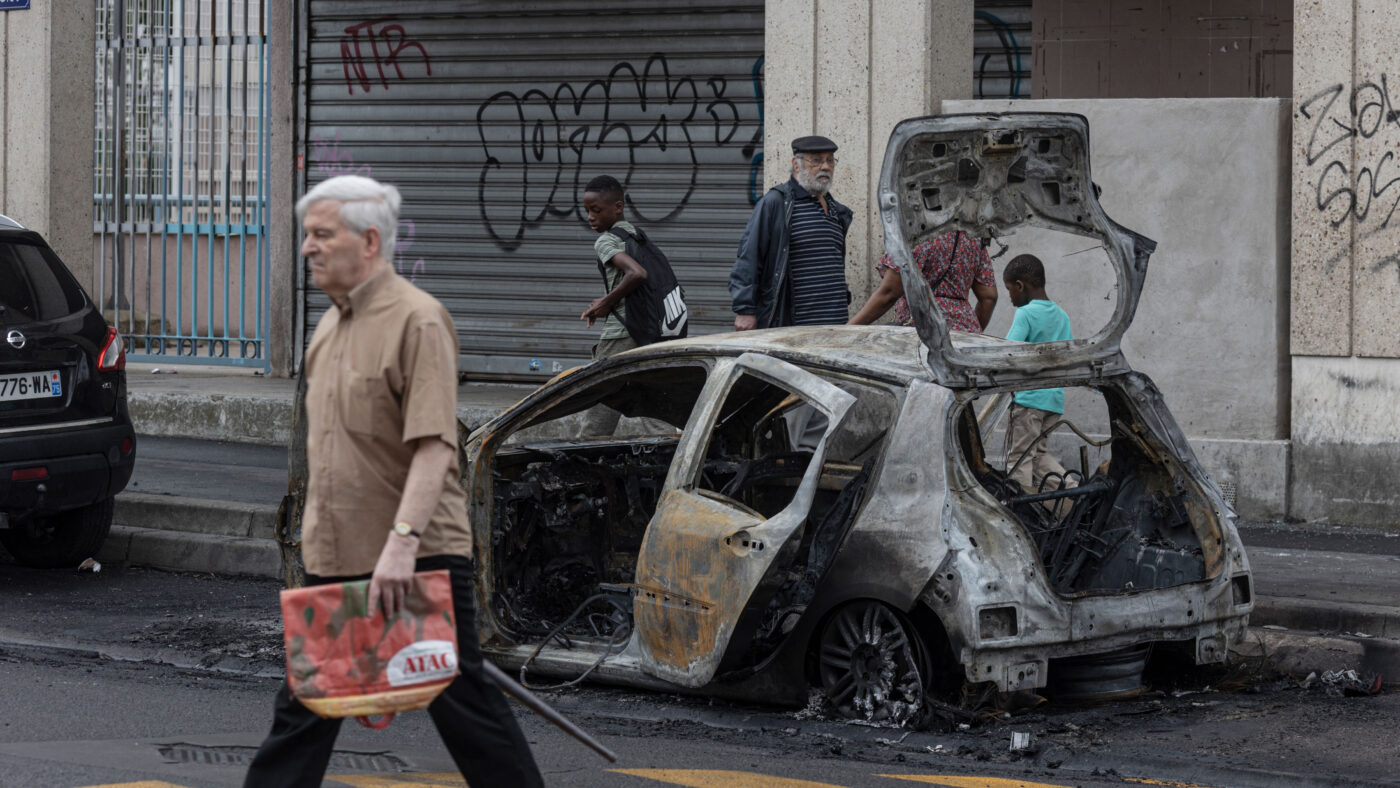France is not a calm country. My country isn’t like Denmark, Austria or the Netherlands. That’s also what makes its history so unique. France is a country where the best and the worst live cheek by jowl.
The last few days have obviously not shown the best of France. Last week a policeman shot dead a 17-year-old named Nahel during a traffic stop in the Parisian suburb of Nanterre. The officer who fired the fatal shot is now in custody and under investigation, but this tragic and unjustified death has set off a wave of serious unrest all over the country – not just in Paris itself, but Marseille, Lyon and Lille, along with smaller towns like Montargis. Thousands of rioters, some as young as 11, have burned cars, attacked police stations and town halls, and looted shops. The result is not just hundreds upon hundreds of burned and battered retail premises, but a huge bill for the insurance sector to boot. Several mayors have themselves been subject to personal attacks on their homes and families.
Why are things so combustible in France’s notorious banlieues?
The answer is twofold. First, these suburbs are home to a population of immigrants, or descendents of immigrants, who are generally not well integrated into French society and believe the French state to be fundamentally racist. This is clearly absurd: not only is the state universalist, but it has created numerous programmes specifically to help these very communities. Nonetheless, there’s no denying that feelings run high, particularly among France’s Muslim population.
Second, the drug trade – particularly cannabis and cocaine – is extremely prevalent in these areas. To give you an idea of the scale, illegal drug dealing in France is worth about €3bn a year and about 200,000 people rely on it for their living – a truly enormous number.
Taken together, the combination of social unease and drugs means the banlieues are in a state of chronic tension, with dreadful relations between local people and the police. In that context, the death of a young man like Nahel was the perfect opportunity for rioters to take arms against a police force they consider their enemy.
This is not the first time France has witnessed riots, of course. According to the sociologist Olivier Galland, there are two things that distinguish this year’s events from those we saw in 2005.
First, there was no social media back then. Today, TikTok, Snapchat and Twitter mean rioters can not only coordinate their actions but also show off their loot. They are proud of filming their vandalism, both to impress their mates and strike fear into rival gangs.
Second, in 2005 French politicians stood united in condemning the rioters. Today, the French extreme left, eggs them on. They are led by Corbyn ally, Jean-Luc Mélenchon, a nostalgist for the French revolution whose France Insoumise party now has 76 deputies in the National Assembly – most of whom behave in a vulgar, inflammatory fashion. Far from calling for calm, they have stoked the fire in the hope that violence in the suburbs will somehow bring down the Macron government.
Awful though they have been, I believe these riots will now peter out, not least as the forces of law and order are led by a very energetic Interior Minister in Gérald Darmanin. From an economic point of view they have been a disaster for the insurance industry, which will now have to shell out tens if not hundreds of millions of euros to businesses and other organisations affected.
In the long term, though, it is the reputation of France that will suffer. That is another difference with 2005: back then the riots did not really have a discernible impact on the country’s image.
France is far from alone in facing these problems, of course. Other countries, including Sweden and the United States, have also seen civil unrest in recent years, often due to the same kind of issues that have turned our suburbs into a tinder box.
We must turn our attention to the root causes of this violence, while at the same time reinforcing the ranks of the police to make sure that public order is maintained. After all, as Adam Smith noted in The Wealth of Nations, there can be no freedom if there is no order. ‘The first duty of the sovereign,’ he wrote ‘[is] protecting the society from the violence and invasion of other independent societies…The second duty…[is] protecting, as far as possible, every member of the society from the injustice or oppression of every other member of it’.
Click here to subscribe to our daily briefing – the best pieces from CapX and across the web.
CapX depends on the generosity of its readers. If you value what we do, please consider making a donation.


